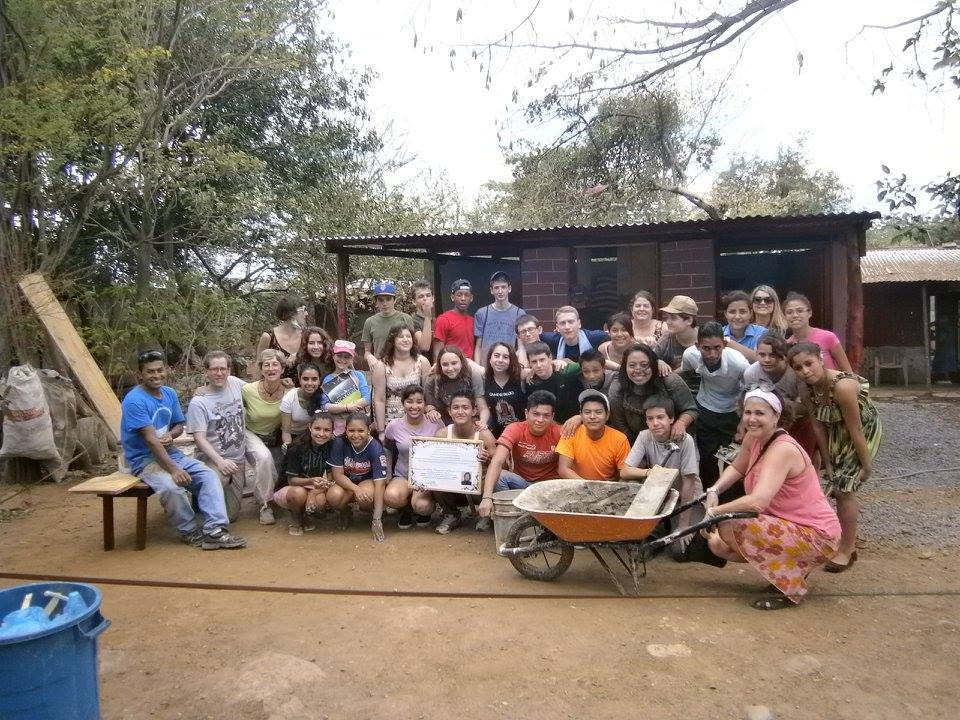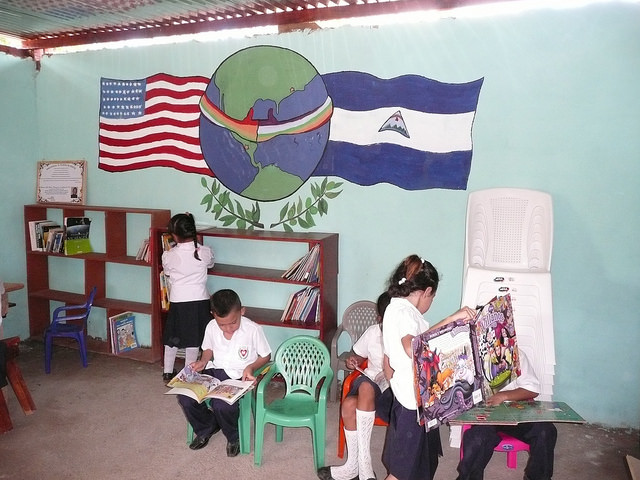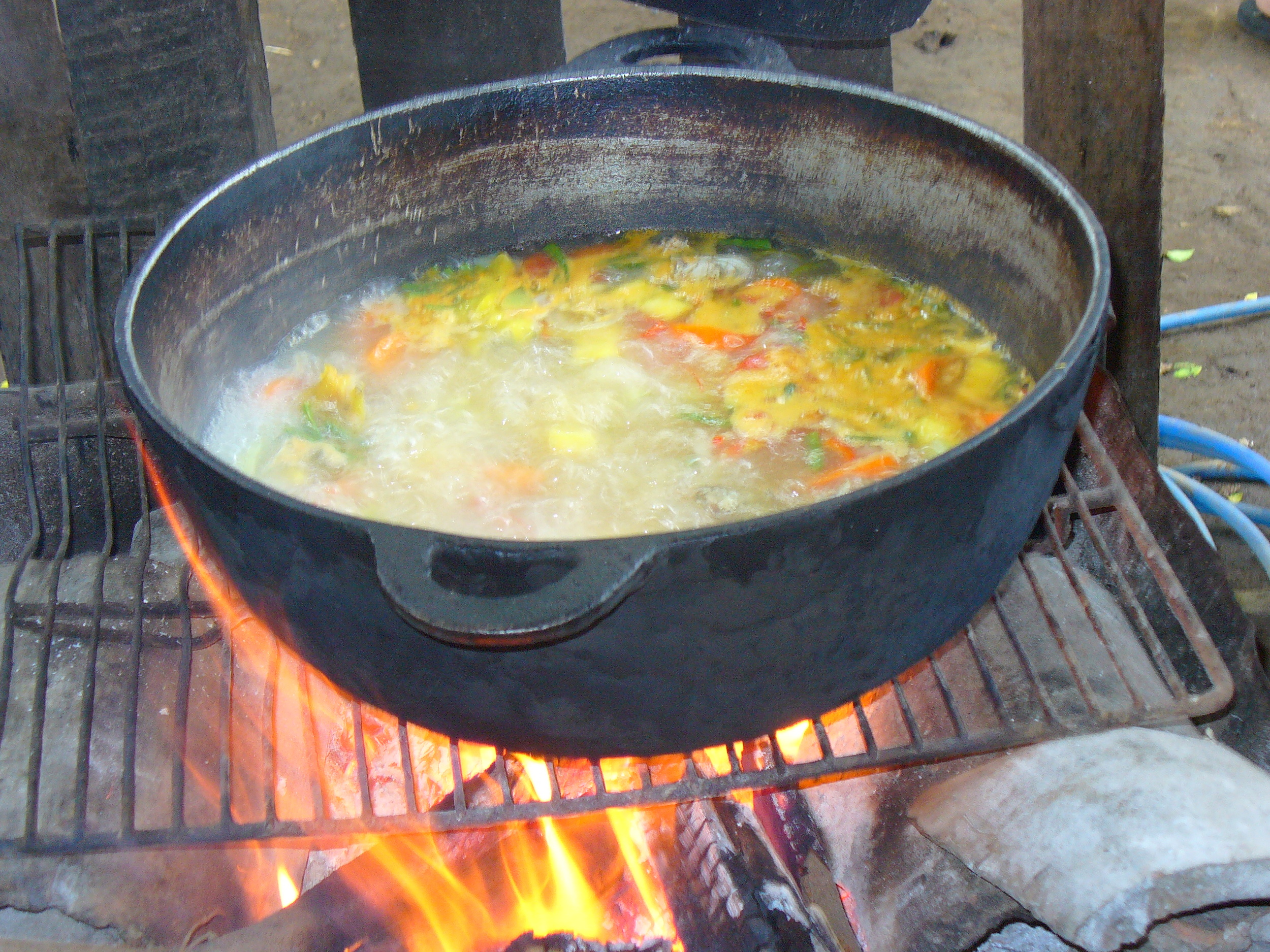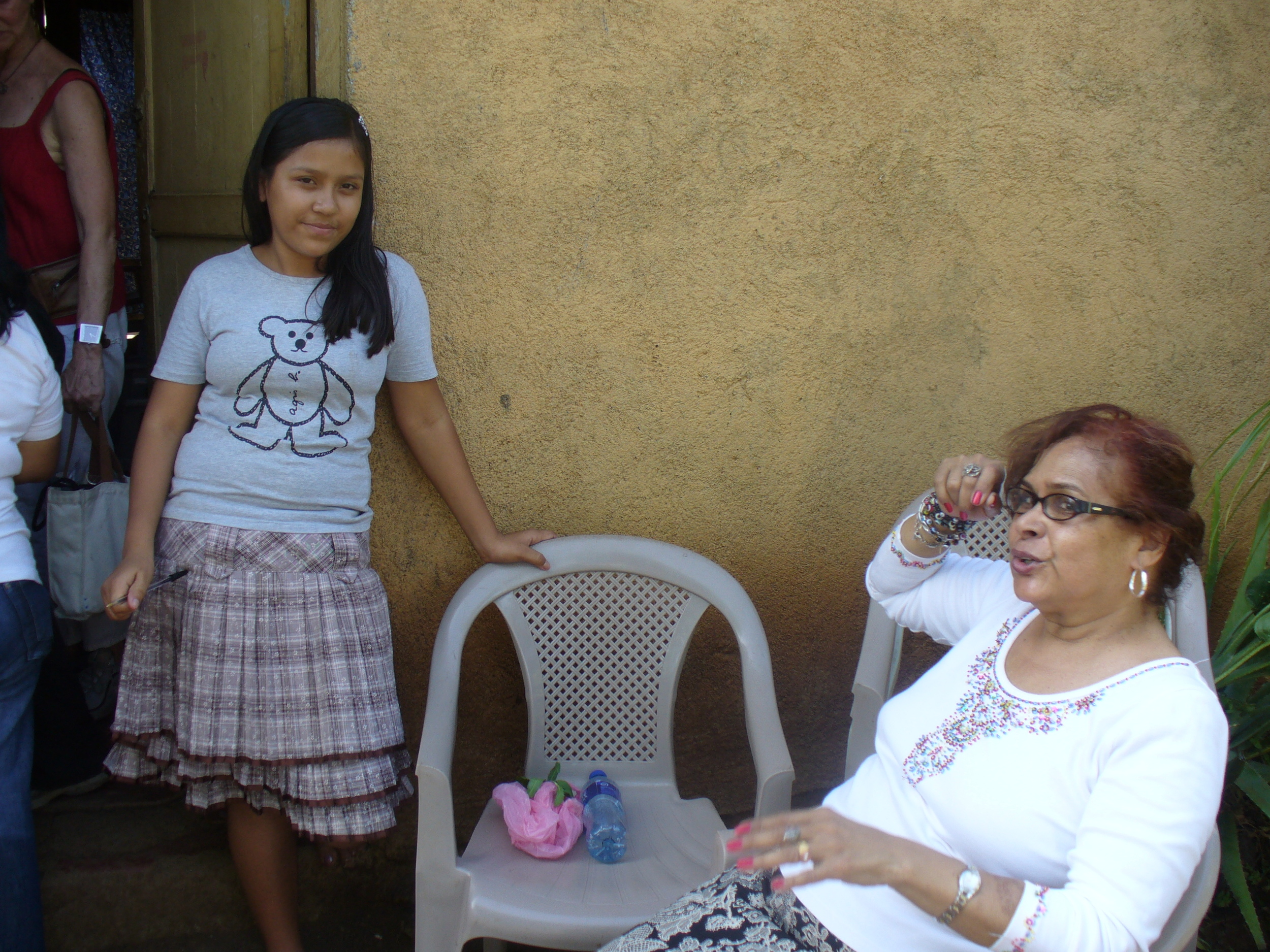We've just returned from our latest delegation in Tipitapa and everyone who took part agreed that the progress we witnessed on the ground was astounding. Not only were we able to watch members of the communities work as volunteers to build a fence, a library and provide their villages with potable water, but we also met so many dedicated and passionate community organizers that we can return to New York safe in the knowledge that our projects are taking great steps and are in safe and caring hands.Our first report comes from Scott Woods, who joined our delegation from Phoenix, Arizona. This was his first delegation with Dos Pueblos and we were honored to have him as part of our group.
“No mas no more, we must stop the dirty war, compañeros compañeras cry out, no mas no more.” While the lyrics from this School of America Watch song(written by none other than our great friend and supporter, John McCutcheon) are more relevant to Colombia, El Salvador, and Honduras, Nicaragua too has fallen victim to failed international policies and internal strife. The civil war in Nicaragua ended decades ago resulting in a relatively peaceful society, one with promise, but one that still faces social challenges. The recognition of positive peace, in which the society experiences social systems that serve the entire population, is still a dream for many, especially the residents of communities in and around Tipitapa.
An ongoing interest in Latin American culture, governmental systems, and global policies affecting Central America, specifically Nicaragua, initially drew me to Dos Pueblos. In researching the history of the organization, I learned quickly of the many successful projects and contributions that Dos Pueblos has made to the communities of Nicaragua. The January 2011 delegation was not only an opportunity to gain a breadth of knowledge of the challenges facing Nicaragua, but also, witness the successes of Dos Pueblos and the “faces” of the various communities supported by Dos Pueblos.
Last year, I was involved in a campaign to bring attention to the displaced people in Colombia. The campaign used “faces” and personal stories in an effort to humanize the displacement of campasinas in Colombia. The people of Latin America are often forgotten as a whole when it comes to United States governmental policy and U.S. corporate actions. NAFTA, CAFTA, and the pending Colombian trade act fail to take into account the “faces” and the broad reaching ramifications of many policy actions.
As I disembarked Managua’s Augusto Sandino International Airport, and until my tearful departure eight days later, I was always greeted by warm, caring, happy, and smiling Nicaraguan people, perhaps even more so, from those living in situations of extreme poverty or with physical/cognitive disabilities.
With Nicaragua being the second poorest country in the western hemisphere, a considerable level of financial despondency was expected. It was emotionally disquieting to witness the pain and suffering, but more disconcerting is the fact that much of this suffering results from a lack of compassion on the part of distant political and corporate leaders. I witnessed the many successes and happiness that Dos Pueblos and other NGO’s have brought to the various communities; on the other hand, I would be remiss if I failed to share some of the less favorable situations and the affected faces. The economic strife witnessed was broad reaching within the areas of human rights, nutrition, health, and education.
Day one of the delegation brought us to the community of Santa Marta. I learned that at one time, the area around Santa Marta was home to sugarcane fields and a state-run sugar processing facility that employed many people in Tipitapa, which was subsequently privatized in the 1980s and eventually closed down. They have been replaced by many sq km of fields filled with rice paddies. This seems like a perfect fit until you learn that the co-op responsible for the rice uses nearly all the available water, leaving a well in the community of 200 plus families nearly dry.
While the pain I witnessed was heartbreaking, the projects supported by Dos Pueblos and this delegation, however small, do make a huge difference. It is difficult to say which project has or will have the most impact. A well project from last year enables 200+ families to have potable water. However, the community has no school, and the nearest community with a school, San Benito, does not have the resources to support students from other communities’ even if they could afford the bus fare.
Various micro-finance projects allow women to prosper and contribute to the community. While nearly all micro-finance projects have contributed greatly, the children’s smiles indicated that the expansion of a small community store to include the sale of ice cream (Eskimo) was particularly welcome and successful.
The delegation with Dos Pueblos to Nicaragua and the delegates have made a lasting impression. Kicking a football on a dirt street with the kids, watching a young boy roll an old bicycle tire with a stick, smiling the entire time, and the smiles on the children’s faces at the library will forever bring a smile to me.
The people of Nicaragua will always be close to my heart and in my thoughts. I will continue to share my witness and will return soon in hopes of contributing to more growth and opportunity for the people of Nicaragua. I cannot express how proud I am of the children and their contributions to their communities and families, and how sad I am that often they do not have the opportunity to just be kids.


















